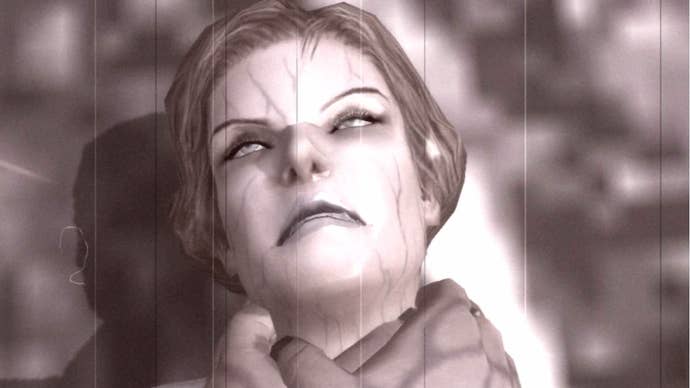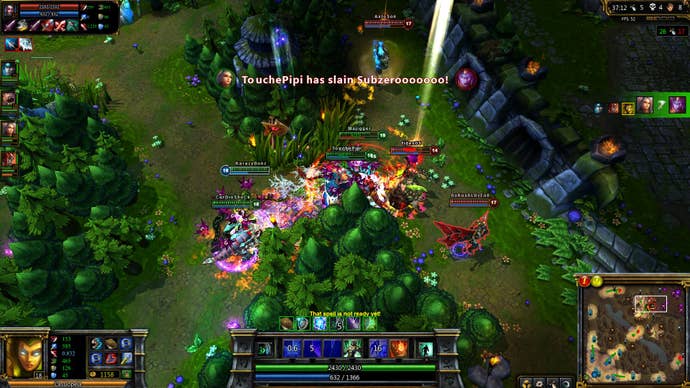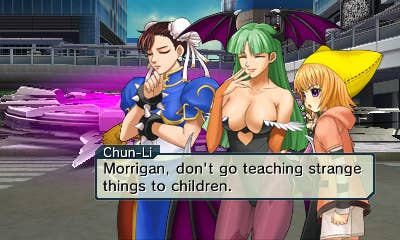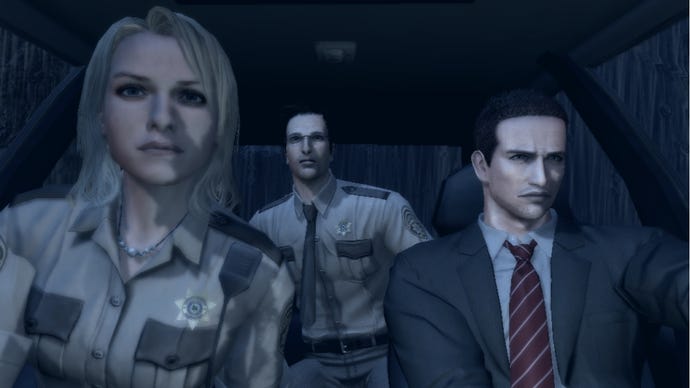Seeing the Good Within
Why would you ever play a "bad" game? To have an interesting experience, of course. Pete turns to John Updike's rules of criticism for inspiration.
This article first appeared on USgamer, a partner publication of VG247. Some content, such as this article, has been migrated to VG247 for posterity after USgamer's closure - but it has not been edited or further vetted by the VG247 team.
A couple of weeks ago, the USgamer team shared our favorite "bad games" -- games which had been received poorly either critically or commercially -- and why we actually liked them.
Today, I wanted to talk a little about an interesting related consideration: why would you ever want to play a "bad" game, and how should you handle the experience?
The temptation when looking at something widely regarded to be bad is to maintain the status quo, looking for all the things that everyone else has already declared to be bad and confirming them for yourself.
An alternative approach is to go in with a completely open mind and draw your own conclusions which may or may not match up with the "norm."
A third approach is to take into account the most widespread criticisms, then decide whether or not they bother you to the same degree as other critics. I say "critics" here not to delineate between those of us who write in the games press and those of us who are simply enthusiasts; we're all critics, really, since we all have the capacity to make our own judgements on things we've engaged with, we're all able to express our opinions freely thanks to the magic of open Internet communication. And, of course, we don't always agree on things.

In 1977, novelist John Updike outlined a series of "rules" that he always attempted to follow when reviewing something -- rules that allowed him to criticize graciously and fairly. Updike's original rules were intended to apply to those reviewing books, but many of them are just as valid when it comes to judging, reviewing and criticizing games, whether you're doing so in a professional capacity or simply enthusing to a friend. Here's a few highlights:
Try to understand what the author wished to do, and do not blame him for not achieving what he did not attempt.
Games are seldom the work of a single creative mind, though there are odd exceptions where a single "auteur" leaves a very distinctive stamp on the experience -- good examples include Swery (Deadly Premonition), Suda 51 (Shadows of the Damned, Lollipop Chainsaw, Killer is Dead) and even Nintendo's Shigeru Miyamoto. In these cases, the creator's vision is often very clear, so it's easy to see what they were going for and whether or not they achieved it.

In a game designed by a larger group of people, though, this isn't always so easy. But the main takeaway from Updike's first rule should be that if you personally disagree with the way a game has done something, that doesn't necessarily make it "bad" -- the creators may simply have deliberately chosen to go in another direction for their own reasons. If, say, you disliked Final Fantasy XIII for not having a conventional turn-based battle system, this isn't particularly fair, since that was never the intent; instead, you should be looking at what it was trying to do with its combat and whether or not you believe it was successful.
Give [the author] enough direct quotation so the review's reader can form his own impression.
This is not particularly practical to do with games, since you can't really "quote" a game. You can quote a game's story, sure -- assuming it has one -- but that doesn't really reflect what the experience of actually playing the thing is like.
What you can do, though, is share the experiences you've had with a game. Tom "Pentadact" Francis, developer of indie puzzle platformer Gunpoint and former writer for PC Gamer magazine, stresses the importance of this in his own recent article Five Things I Learned About Games Criticism in Nine Years at PC Gamer.

"Giving specific examples is dramatically better in every way," writes Francis. "They give a much more colorful picture of what the game's like to play than any overall description could; they illustrate more about your point than you could ever articulate in the abstract; and as a bonus, they also make me believe you."
These days, there are lots of ways of sharing your experience. You can write about it. You can record a video and upload it to YouTube, perhaps adding commentary. You can podcast. You can stream via services like Twitch. Any and all of these facilities are open to everyone -- professional or enthusiast -- and they're all powerful means of "quoting" a game to give people a much better idea of what it's like.
Go easy on plot summary, and do not give away the ending.
This one goes without saying, surely. While spoilers don't bother some people, others get really, really angry about them. If talking about the ending is an important part of talking about why the game is good, try not to diminish the impact for others. Perhaps talk in more general terms about the themes and concepts seen in the game rather than the specifics of what happened. Talk about how it made you feel; talk about how you felt when it was all over. Do not tell everyone that it turns out that Ellen Page was dead all along because she was killed by Sephiroth at the end of the first disc. Or something.
If the [game] is judged deficient, cite a specific example along the same lines. Try to understand the failure. Sure it's [the author's] and not yours?
This is a bitter pill to swallow sometimes, but occasionally you'll experience something that is not "for" you. You may end up disliking it -- intensely in many cases. But does this really mean it's "bad?" Absolutely not; it simply means that it wasn't to your taste, and perhaps that you weren't the target audience -- not every game is designed to be universally appealing. In this case, try not to put down those who do like something; "I don't like this" is not the same as "this is bad," after all. Likewise, remember that this goes both ways; not everyone else will be into what you like, as we saw in the comments thread for our Project X Zone review recently.

Of course, sometimes something is so objectively broken that even enthusiasts of what it's trying to achieve are turned off by it, at which point it can be safely consigned to the garbage can of history. But before declaring something incontrovertibly bad, be sure that you're not the one at fault. And see if you can find an example of something aiming for the same goal and reaching it. What's different between the two? Why does one work and the other doesn't? Is there anything redeeming in the less successful work?
Review the [game], not the reputation. Submit to whatever spell, weak or strong, is being cast. Better to praise and share than blame and ban.
Here lies the crux of the matter, so far as I'm concerned. I would much rather actively seek out the good within something than immediately assume it is bad based on reputation. I've done this a number of times both personally and professionally over the years, and it's pretty much always led to very pleasant surprises, whether it's the emotional sway that Nier held over me, the amount of immersion I found in Ar Tonelico's incredibly well-realized world, or the discovery that the otherwise rather shoddy Hyperdimension Neptunia series is filled with characters that appeal very much to my own personal tastes and make me smile.
By all means acknowledge that something has flaws -- be these technical, aesthetic, mechanical or thematic -- but consider whether those things affect the experience as a whole.

"I want to rant for three paragraphs every time a multiplatform game has glitchy mouse behaviour in its menus," says Francis. "But if they fixed it, it wouldn’t change my score." Is that flaw really that important to you?
Approaching criticism from a "praise and share" rather than "blame and ban" perspective is also a way of thinking that leads to being a more positive person on the whole. By approaching things in this way, you'll be able to enjoy a much broader spectrum of experiences. Having a willingness to open your mind to new, sometimes flawed, sometimes ambitious experiences can lead you to discover things that you never knew existed. And you might not want to look back after you've jumped down that particular rabbit hole.
